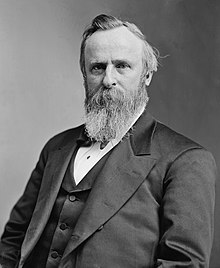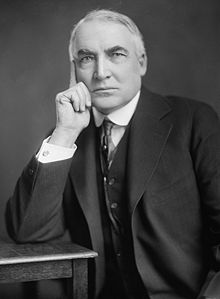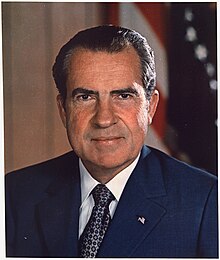I notice commonalities between these presidents.
 |
| Andrew Jackon |
Andrew Jackson was elected president in 1828. He is a personal hero of Donald Trump. He is best known for kicking the Indians out of Georgia (although the "Trail of Tears" happened under his successor Martin Van Buren), for supposedly saying the Supreme Court has made its decision, now let them enforce it, and for abolishing the Second Bank of the United States, and for getting rid of the national debt (for the only time in the country's history).
 |
| Rutherford B Hayes |
Rutherford B Hayes was elected president in 1876 (48 years after Andrew Jackson). He lost the popular vote to Democrat Samuel J Tilden but won in the Electoral College in an intensely disputed election (similar in some respects to the 2000 dispute between Bush and Gore). His name is almost synonymous with ending the Reconstruction of the South, which some people believe should have been continued.
 |
| Warren G Harding |
Warren G Harding was elected President in 1920 (44 years after Rutherford B Hayes). He is known for being a tool of Wall Street (he appointed Andrew Mellon as Secretary of Treasury), for cutting taxes (which substantially increase tax revenues), and for opposing bonuses for WWI soldiers. He gets credit for the booming economy of the 1920s:
The top marginal rate was reduced annually in four stages from 73% in 1921 to 25% in 1925. Taxes were cut for lower incomes starting in 1923. The lower rates substantially increased the money flowing to the treasury. They also pushed massive deregulation and federal spending as a share of GDP fell from 6.5% to 3.5%. By late 1922, the economy began to turn around. Unemployment was pared from its 1921 high of 12% to an average of 3.3% for the remainder of the decade. The misery index, which is a combination of unemployment and inflation, had its sharpest decline in U.S. history under Harding. Wages, profits, and productivity all made substantial gains; annual GDP increases averaged at over 5% during the 1920s. Libertarian historians Larry Schweikart and Michael Allen argue that, "Mellon's tax policies set the stage for the most amazing growth yet seen in America's already impressive economy. Wikipedia
He is also known for scandals (the Teapot Dome Scandal) and for his extramarital affairs, both of which came to light only after his death.
 |
| Richard M Nixon |
Richard M Nixon was elected President in 1968 (48 years after Harding). He ran on a platform of law and order and rode the wave of outrage against the Supreme Court ('impeach Earl Warren"). He was not a conservative - he imposed wage-and-price controls, he established the Environmental Protection Agency, he enforced desegregation,and he opened up relations with Red China. After the Watergate scandal, he resigned on August 9, 1974 rather than be impeached.




No comments:
Post a Comment